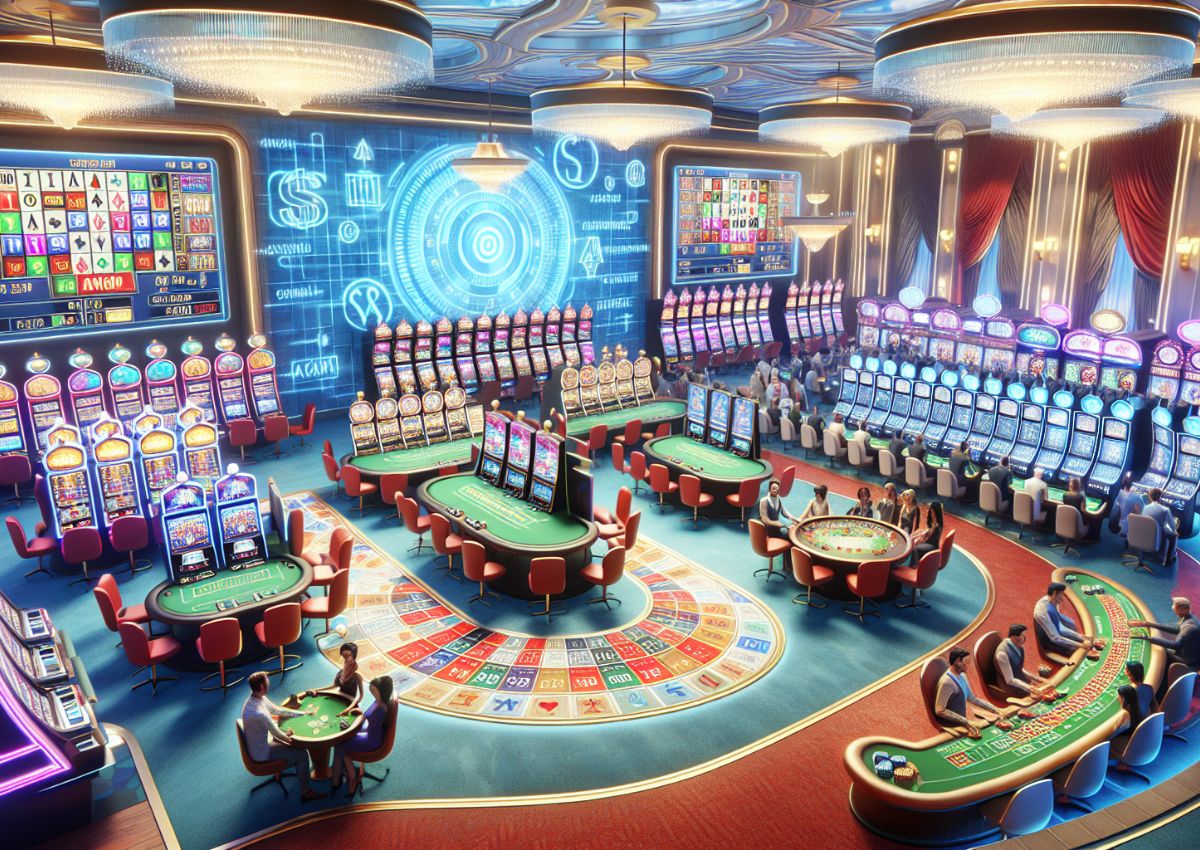
Casino games have captivated for years a wide range of players, offering not only the excitement of risk but also a unique experience designed for various player types. Including analytical thinkers who thrive on strategic thinking to the casual players who seek entertainment, casinos are aware of the subtleties of their audience and develop games that meet these diverse preferences.
In investigating the realm of gambling games, we encounter a variety of options that appeal to players of all kinds. Poker tables with high stakes attract competitive players, while vibrant slot machines appeal to individuals in search of instant gratification. Whether it be the lure of winning large or simply savoring the community feeling, casinos tailor their game offerings to ensure that all players find a place that feels comfortable and engaging. Understanding how these games are designed for diverse types of players can enhance not only our understanding of them but also our method for choosing which games to play.
Comprehending Participant Groups
In the varied world of casino entertainment, players can be grouped into distinct types based on their drives and choices. These participant types range from the laid-back and communal gamers, who enjoy the entertainment value and social connections that gambling provides, to the more strategic and analytical players, who seek to maximize their probabilities and gains. Comprehending these distinct player types is essential for casinos to tailor their services and build captivating settings.
One popular category is the social player, who considers casino games as a form of group interaction and fun rather than a serious gambling endeavor. These gamers often enjoy games that encourage engagement and camaraderie, such as poker. sayapbola daftar Their emphasis is on the journey rather than the outcome, so lively atmospheres and shared moments are what they cherish the most.
On the other end of the range, tactical players are driven by rivalry and the quest of ability. They tend to be drawn toward games that necessitate tactical planning and strategy, such as blackjack, where their abilities can determine the result. This kind often involves with the games on a deeper level, utilizing expertise and tactics to secure an edge. Understanding these motivations allows casinos to create atmospheres and game selections that address to each participant’s distinct choices.
Strategies for Game Design
Gambling games are created with varied player types in mind, employing various strategies to attract and capture them. For casual players, the focus is on simplicity and ease of understanding. Games like slots are frequently aesthetically pleasing with straightforward mechanics. This allows players to enjoy the gameplay without a steep learning curve, creating an welcoming atmosphere. The bright colors, engaging audio, and themes create a playful environment where players can easily get involved and entertained.
For tactical players who enjoy a more profound level of engagement, games such as Texas Hold’em and 21 offer depth and skill-based elements. These games feature strategy and tactical choices, attracting to players who excel on competition and want to exercise their mental skills. The design of these games regularly includes complex rules and mechanics that test players to hone their skills and create strategies over time, resulting in a rewarding experience for those who enjoy mastering the game.
Furthermore, social players are catered to through games that emphasize engagement and community. This includes live casino options and multiplayer games, which foster a sense of community among players. The design of these games often includes communication tools and communal aspects, allowing players to interact and share experiences. By building an environment where participation is encouraged, casinos can effectively engage community players, making the gaming experience more pleasurable and memorable.
Improving Player Satisfaction
Betting games have advanced significantly to create a significantly entertaining experience for participants. Game developers focus on immersive visuals, rich audio effects, and innovative gameplay features that pull participants into the gaming environment. By leveraging tech, such as VR and enhanced reality, casinos ensure that participants feel as if they are part of a dynamic experience, enhancing not only the enjoyment of the games but also the overall enjoyment of being in a casino.
Community engagement is another critical element in enhancing participant engagement in betting options. Many games are developed to encourage engagement among players, whether through team play or social tools. This community feature attracts players who like interacting with fellow players while engaging, fostering a community vibe community. Furthermore, community aspects can feature scoreboards, contests, and prizes for cooperative play, which capture ambitious gamers and inspire them to come back for additional.
Lastly, customization plays a vital role in adapting the interaction for different participant categories. Betting companies and title creators study gamer activities and likes to present personalized game options and benefits. By understanding the distinct tastes of participants, gaming establishments can provide customized offers, bonuses, and new game releases that appeal to each individual, thus enhancing their overall satisfaction and commitment to the gaming venue.